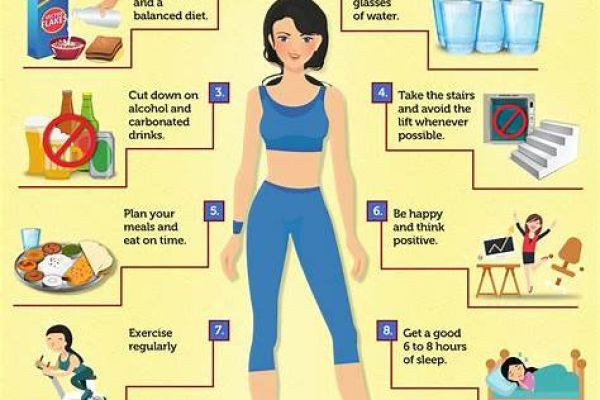4. Stay Hydrated
- Drink plenty of water throughout the day to support metabolism and reduce unnecessary snacking.
- Consider drinking a glass of water before meals to help control appetite.
5. Limit Added Sugars and Processed Foods
- Reduce intake of sugary drinks and high-calorie processed foods.
- Opt for whole, unprocessed foods to provide essential nutrients.
6. Get Adequate Sleep
- Aim for 7–9 hours of quality sleep per night to regulate hunger hormones and support metabolism.
7. Exercise Regularly
- Strength Training: Incorporate weightlifting or resistance exercises 2-3 times a week to build muscle mass.
- Cardio: Engage in activities like walking, running, or cycling to burn calories and improve cardiovascular health.
- Stay Active: Incorporate more movement into your day, such as taking the stairs or walking after meals.
8. Practice Mindful Eating
- Eat slowly and savor your food to enhance satisfaction and prevent overeating.
- Avoid distractions like screens during meals to focus on your eating experience.
9. Plan and Prepare Meals
- Prepare meals ahead of time to ensure healthy options are readily available.
- Keep healthy snacks on hand to avoid reaching for high-calorie, low-nutrient options.
10. Monitor Progress Wisely
- Track your food intake, physical activity, and other relevant factors to understand your habits.
- Use measurements beyond weight, such as energy levels and how your clothes fit, to gauge success.
11. Practice Self-Compassion
- Acknowledge that setbacks are a normal part of the journey.
- Celebrate small victories to boost motivation and reinforce positive behaviors.
For visual inspiration and additional tips, you can explore resources like Weight Loss Tips & Tricks on Pinterest, which offer a variety of images and strategies to support your healthy weight loss journey.
Remember, consistency and patience are key. By adopting these healthy habits, you can work toward achieving and maintaining a healthy weight.









